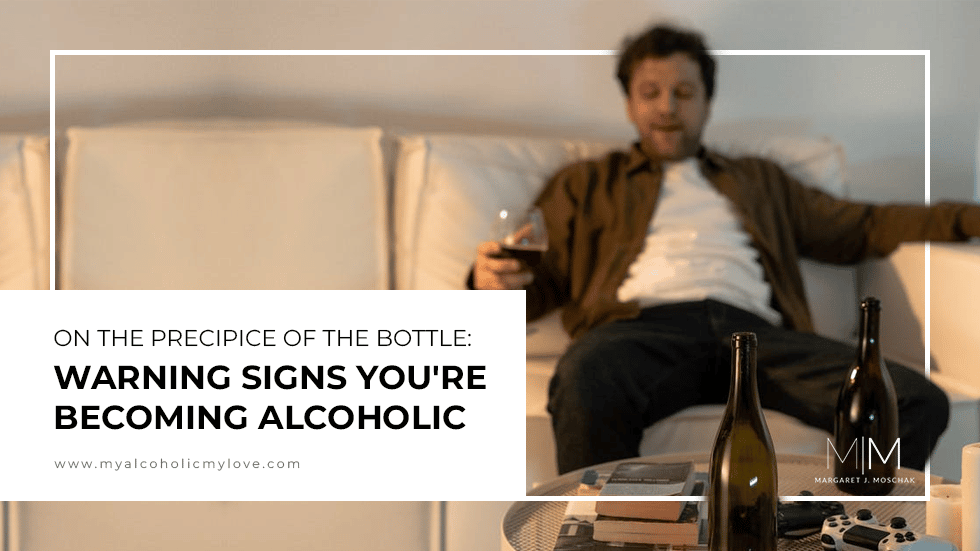Whether you’re only trying on a few drinks or living with an alcoholic, it can be easy to slip into the regretful pit of alcoholism. Find out what the common first behavioral manifestations are to help avoid them.
Alcohol of all kinds is a widely consumed recreational drug globally. Almost everybody in the family drinks it. Your mom may drink a margarita. Your brother may drink a beer. Your sister might enjoy a piña colada. There is liquor for everyone. In fact, about 33% of all humans currently drink alcohol. Think of a place in the world right now, and chances are somebody there is probably enjoying an excellent red wine with his meal.
Drinking is also one of the favorite past times of the world. The effects of alcohol in low doses help people to be social. Alcohol can cause euphoria, reduce anxiety, and increase sociability. These effects are always welcome in any social situation. It is what makes drinking “fun.” However, higher doses of beer can cause damaging effects on the body, namely drunkenness, stupor, unconsciousness, or even death. Further long-term usage can lead to alcohol dependency or alcoholism, an increased risk of developing many types of cancer, and physical dependence.
Alcoholism, or “alcohol dependence syndrome,” as the World Health Organization prefers to call it, is a global problem. As of 2016, over 380 million people are affected by it, with most being the male and young adult population. Environmental and genetic factors mainly explain why people suffer from alcoholism. People living with an alcoholic are often influenced to drink alcohol themselves, thus increasing the factor of them also becoming alcoholics. Alcoholism can develop in people who use alcohol as a crutch in social situations, especially when they become entirely dependent on it.
So how does one identify if they are becoming an alcoholic? There are plenty of signs, but it still helps to have something to look into to be sure. Some of these signs include:
Being obsessed with alcohol
If the first thought you have upon waking up is to find a drink, or if you need a drink before you can even start your day, then chances are you are already an alcoholic. This obsession is not only limited to the morning but lasts throughout the day. Alcoholics tend to find the next time and reason to drink throughout the day, no matter how small that reason is.
Using alcohol as a crutch to avoid emotions
First and foremost, alcohol is a recreational drug, and though some have therapeutic effects, they are still not a substitute for the real things. If you are using alcohol for another purpose other than recreation, you might have problems.
You are hiding your alcohol consumption
Although drinking alone is not a sign of a bad relationship with alcohol, hiding your drinking from friends, colleagues, or even partners is. They say that there is nothing to hide if there is nothing wrong. This quote reverberates profoundly when dealing with alcohol. Maybe it’s time to get help if your rendezvous with alcohol is becoming something of a secret you need to hide.
People are becoming concerned about you
People always show concern when they notice something is wrong. Even if you think you are still in control, some manifestations of alcoholism can still seep out. People can quickly point out these behaviors, which you might have started to think of as normal. As such, if people are showing concern with your alcohol consumption, chances are there really is something to feel concerned about.
You cannot stop drinking, even if you try
Alcohol is an addictive substance. As such, you will likely get addicted to it. Probably the most obvious sign that you are addicted to alcohol is the fact that you do not have control over your drinking habits. No matter how much you refuse a drink, you are still tempted to get one bottle. Even if you said that you would never drink again while continuing to down one more battle is not a flattering picture of your relationship with alcohol.
Alcoholism is a severe problem. It is also not a unique problem. If you ever find yourself too dependent on alcohol, it may be time to reduce your alcohol consumption or quit cold turkey significantly. However, if you think you cannot do it alone, there is no shame in asking for help.


Recent Comments